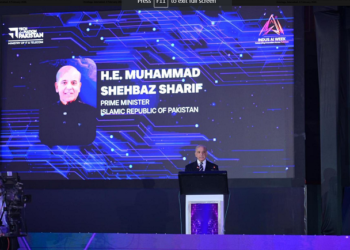Introduction
The issue of human rights violations in India has once again come under scrutiny, with Pakistan’s Foreign Office strongly condemning India’s treatment of minorities. In response to remarks made by Indian foreign officials in the Lok Sabha, Foreign Office Spokesperson Shafqat Ali Khan highlighted the systematic and ongoing violations of human rights in India, particularly against minorities.
India’s History of Human Rights Violations
India has a long history of human rights abuses, especially concerning its treatment of religious and ethnic minorities. From the controversial Citizenship Amendment Act (CAA) to the demolition of Muslim-owned properties and places of worship, numerous incidents have raised concerns among human rights organizations globally.
The Pakistani Foreign Office spokesperson emphasized that despite India’s claims of being a democratic nation, the reality on the ground tells a different story. The Indian government has been accused of turning a blind eye to violent acts against minorities, with many such incidents occurring with official backing or tacit approval.
State-Sanctioned Discrimination and Violence
Shafqat Ali Khan pointed out that India’s state institutions not only fail to protect minorities but also actively participate in policies and actions that marginalize them. Some key examples include:
- Citizenship Amendment Act (CAA): A discriminatory law that grants citizenship based on religion, effectively excluding Muslims.
- Demolition of Muslim-Owned Properties: The systematic bulldozing of homes and businesses owned by Muslims has been reported in several Indian states.
- Destruction of Religious Sites: The demolition of the historic Babri Masjid and its replacement with a Hindu temple is a glaring example of India’s disregard for religious minorities.
- Mob Violence and Lynching: There have been multiple instances of mob violence targeting Muslims, Dalits, and other marginalized communities, often with little to no action taken by law enforcement agencies.
Pakistan’s Commitment to Minority Rights
Contrary to India’s track record, Pakistan remains committed to protecting its minority communities, stated the Foreign Office. The spokesperson stressed that Pakistani state institutions actively work to ensure the safety and well-being of all religious and ethnic groups.
Shafqat Ali Khan highlighted that while sporadic incidents may occur in Pakistan, they are not state-backed, and authorities swiftly take action against perpetrators. In contrast, in India, discrimination against minorities is embedded in state policies, leading to widespread suffering and marginalization.
International Concerns and Calls for Action
The global community has repeatedly expressed concerns over India’s human rights record. International human rights organizations such as Amnesty International and Human Rights Watch have documented and condemned India’s treatment of minorities. The United Nations has also raised alarms about the increasing levels of discrimination and violence against Muslims, Sikhs, Dalits, and Christians.
The Foreign Office spokesperson urged the international community to take concrete steps to hold India accountable for its actions. He stressed that India must be pressured to stop its systematic violations and provide equal rights and protection to all its citizens.
India’s Baseless Accusations Against Pakistan
Despite its own severe human rights violations, India frequently attempts to deflect attention by making baseless accusations against Pakistan. The spokesperson condemned India’s strategy of covering up its crimes by falsely accusing others. He reiterated that Pakistan remains committed to highlighting India’s human rights abuses on global platforms and will continue to advocate for the rights of oppressed minorities in India.
Conclusion
India’s human rights violations, particularly against Muslims and other minorities, continue to be a major concern. The Pakistani Foreign Office has strongly condemned these actions, calling upon India to ensure the safety and protection of all its citizens. The international community must take serious note of the ongoing discrimination and violence, ensuring that India is held accountable for its actions. Until then, Pakistan will continue to raise its voice against these injustices and work towards safeguarding the rights of minorities worldwide.

























